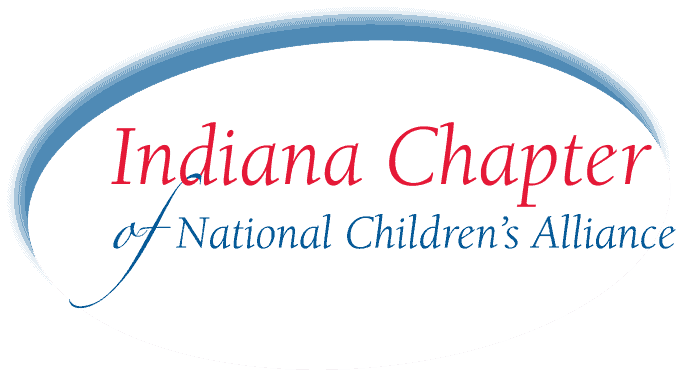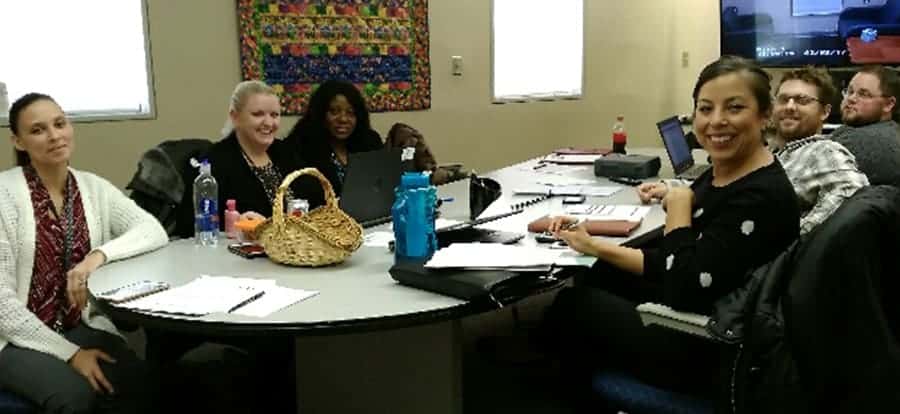Each year in the United States about two million children encounter child welfare systems. Many of those children are removed from the home and placed into temporary housing or the foster care system. To most adults this would seem like the best-case scenario for a child who is in danger while living at home. But an expansive body of research has consistently shown that removing a child from a home has long-term downsides, especially for older children. Removing a child from a home – even a dangerous one – produces high school delinquency, high teen birth rates, severe psychological damage, and ultimately lower earnings.
In northeast Indiana, a community has come together to help keep families together. Stop Child Abuse and Neglect, or SCAN, has been focused on prevention of abuse and preservation of families since 1974. Today, SCAN has numerous programs that work to keep families together – even high-risk, high-stress families.
Recently retired SCAN Executive Director Rachel Tobin-Smith explains, “Prevention services are there to help families who struggle with risk factors that could lead to child abuse or neglect. Things like divorce services and counseling, for instance, help shore up a family so abuse and neglect don’t occur. “Preservation,” she continues, “are for when abuse has occurred, but maybe we have an opportunity to preserve that family with skills training and counseling for parents to help them become better parents.”
As former Executive Director Tobin-Smith explains, “One of the reasons that is so important, no matter how old a child is, they always want to know their parent loves them enough they could live with them. Tearing them out of their natural, biological home and putting them with someone else, when adults often think that’s best, the long-term emotional damage is significant. Whenever possible we want to try and get them back to their biological family.”
SCAN’s services help support a Child Advocacy Center, the Dr. Bill Lewis Center for Children and its satellite location in LaOtto, Indiana, a community in southeast Noble County. SCAN’s arrangement with the CAC handles administrative work like payroll and human resource administration. This frees up time and money for the CAC and the community.
Trisha Fox helps families through SCAN and is also a forensic interviewer at the CAC, a role separated by job function and the organization chart. “I’m manager of the Department of Family Connections. We work with the court system and high-conflict couples who parent children to protect them. Couples that continue to go to court and fight, for example, I work with them to remove the children and educate them on effects of abuse they may not realize,” says Fox.
In addition, she conducts therapeutic reunification of children and parents where parents have exhibited some form of abuse or neglect where courts have found it necessary to monitor and supervise them. “I’ve worked for my entire career on domestic abuse and domestic violence and child abuse,” says Fox, a 15-year veteran of the practice.
Retired SCAN Executive Director Tobin-Smith points to two programs she is particularly proud of. “We have a Community Partners program which is a large state-funded program that helps families struggling with abuse. There’s also a family-centered therapy program, which is an evidence-based model that’s having great success with very difficult families and getting kids and parents through difficult issues.”
Regionally, about 800 children a year walk through the doors at the CAC alone, plus hundreds more are seen by other programs established by SCAN. “The very first time I was on call I was called in at 3 am to interview a child,” says Fox. “The child disclosed some pretty horrible treatment. Some ask how I listen to all that. In my mind, this is probably the easiest thing I do. As that child was telling me what happened to her that night, two things went through my mind. First, this is very therapeutic that this child can talk to someone. I felt good that was the beginning of her healing.”
“Second, she continues, “I knew there was a police officer who could put people in jail in the next room. When she’s telling me these things, there’s such a sense of satisfaction when I walk the child out I hear the law enforcement officer ask the Prosecutor, “Can I go pick them up now?” And they go do it. I really felt a sense of purpose there and while it was horrible, her healing was starting.”
Fox continues, “The next evening, I saw the suspect was arrested and charged. It gave me such a sense of satisfaction to know we were all part of something. That was an ‘ah-ha’ moment that made up for that 3 a.m. phone call. I was so energized when I got home I didn’t go back to bed. I wasn’t focused on the horrible thing that happened to that child, I was focused on knowing this works and it’s important what we do. When I talk to my colleagues they have the same reaction. We can guide children to some healing and we’re able to do something to stop abuse. We know that another child is not going to get hurt.”

